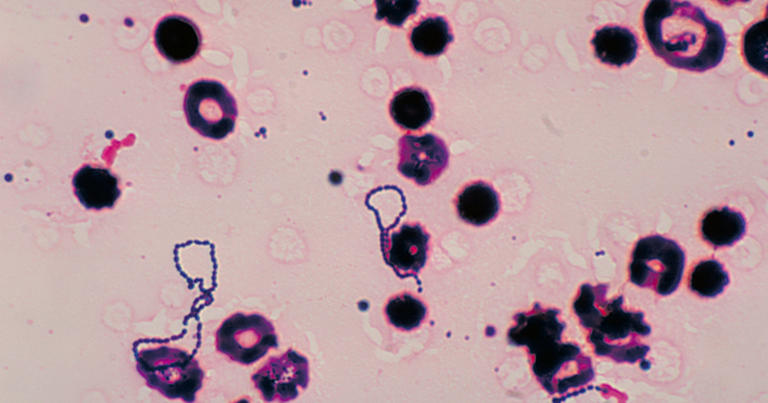Disease X Pandemic Preparedness
Disease X pandemic preparedness is crucial for global health security. Learn how experts are gearing up to tackle an unknown threat that could surpass COVID-19 in severity.

© Getty Images/Science Photo Library RF
Disease X Pandemic Preparedness: Are We Ready for the Next Big Threat?
In recent years, the world has faced numerous health challenges, but experts warn that we might not be ready for the next big one—an unknown disease called “Disease X.” The World Health Organization (WHO) coined this term in 2018 to describe a hypothetical pathogen that could cause a severe global pandemic. The idea behind Disease X is to prepare for something we can’t yet see but know could be devastating.
The Potential Impact of Disease X
Disease X pandemic preparedness is essential because this hypothetical disease could have catastrophic consequences. Experts believe that if Disease X were to emerge, it might result in up to 75 million deaths, far surpassing the impact of COVID-19. This alarming potential highlights the urgent need for robust global health strategies.
The primary reason for concern is that humans are increasingly encroaching on animal habitats, making it easier for new diseases to jump from animals to humans. This was seen with COVID-19, which is believed to have originated in bats. As such interactions continue to increase, so does the likelihood of new and potentially more dangerous pathogens emerging.
Learning from the Past
One of the key aspects of Disease X pandemic preparedness is learning from previous outbreaks. For instance, the rapid development of COVID-19 vaccines was possible because of decades of research on similar viruses like SARS and MERS. Scientists had already gathered crucial information about coronaviruses, which allowed them to create effective vaccines quickly.
By applying this approach to other viral families, we can gain valuable insights and be better prepared. Currently, researchers are focusing on about 25 viral families known to infect humans. This proactive research is essential for creating vaccines and treatments that can be deployed quickly in the event of a new outbreak.
Global Cooperation and Preparedness Efforts
To enhance Disease X pandemic preparedness, world leaders and health organizations are working together. At this year’s World Economic Forum in Davos, global health was a significant topic. Experts from the WHO and pharmaceutical companies like AstraZeneca participated in discussions on how to prepare for Disease X.
The Pandemic Sciences Institute is at the forefront of these efforts. This institute focuses on understanding how viruses emerge, developing vaccines and treatments, and analyzing data and surveillance systems. Additionally, they explore the policy and ethical considerations necessary for effective pandemic response.
Enhancing Surveillance and Data Analysis
A critical component of Disease X pandemic preparedness is improving surveillance and data analysis. By monitoring potential threats more effectively, health authorities can detect and respond to new diseases faster. This involves using advanced technologies and methods to track disease outbreaks in real-time.
For example, improving genomic sequencing capabilities allows scientists to identify and track the spread of pathogens more accurately. Enhanced data sharing between countries and organizations also plays a crucial role in forming a coordinated global response.
Developing Vaccines and Treatments
Developing vaccines and treatments ahead of time is another essential part of Disease X pandemic preparedness. Scientists are working on creating broad-spectrum antivirals and vaccines that can be quickly adapted to new pathogens. This kind of research is challenging but crucial for staying ahead of potential threats.
One promising area is the development of “universal” vaccines that can protect against multiple strains of a virus. For instance, researchers are exploring universal flu vaccines that could eliminate the need for annual flu shots. Similar approaches could be applied to other viral families.
Addressing Ethical and Policy Challenges
Preparing for Disease X also involves addressing ethical and policy challenges. During the COVID-19 pandemic, we saw significant debates over lockdowns, vaccinations, and personal freedoms. Disease X pandemic preparedness requires balancing public health measures with individual rights.
Experts are studying how different policies impacted the spread of COVID-19 and what lessons can be applied to future pandemics. This includes examining the effectiveness of various interventions and how to communicate them to the public effectively. Clear communication is vital for ensuring public cooperation during a health crisis.
Overcoming Criticisms and Building Trust
Not everyone agrees with the focus on Disease X. Some critics, especially from far-right groups, see it as fearmongering or a way to control populations. Former Republican politician and Fox News contributor Monica Crowley, for instance, has voiced concerns that Disease X could be used to impose unnecessary restrictions.
Overcoming such criticisms is part of Disease X pandemic preparedness. Building trust with the public is crucial. This means being transparent about the risks and the steps being taken to mitigate them. Health authorities need to engage with communities, listen to their concerns, and provide clear, evidence-based information.
Conclusion
Disease X pandemic preparedness is not just about dealing with an unknown threat; it’s about building a resilient global health system that can handle any challenge. By learning from past outbreaks, enhancing surveillance, developing vaccines, and addressing ethical and policy issues, we can better protect ourselves against future pandemics.
The world must take this threat seriously and invest in the necessary research and infrastructure. While we can’t predict when or where Disease X will emerge, being prepared is our best defense. The goal is to ensure that when the next pandemic comes, we are ready to respond swiftly and effectively, minimizing its impact on global health and society.
ALSO READ:
Whooping Cough Outbreak 2024: 5 Shocking Facts You Need to Know



